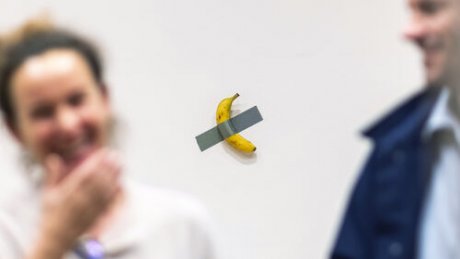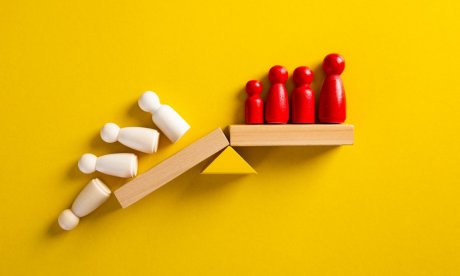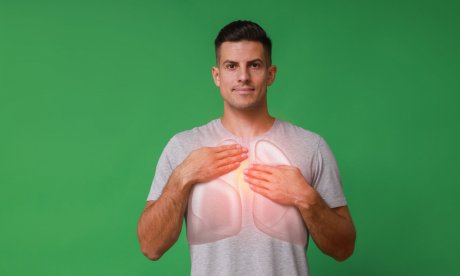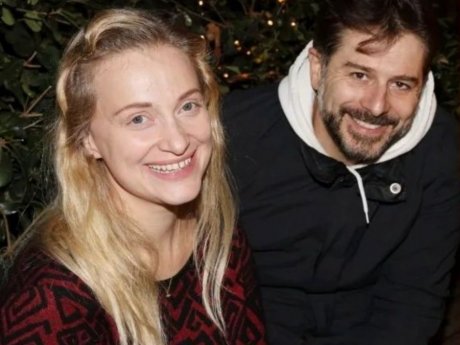Elections Form The Essence Of Indian Democracy
India will start to vote to elect its seventeenth Prime Minister

This will be the largest election the world has seen, with 900 million people eligible to vote—bigger than the population of Europe and Australia combined. The massive electoral exercise will be conducted in seven phases from 11 April to 19 May 2019 at 1 million polling stations. Votes will be counted on 23 May and results will be declared on the same day.
Parliamentary democracy is the central political mechanism governing India. The nation-wide general election returns representatives of the people to the Lok Sabha (House of the People in the Union) every five years, a system that has been the pillar of the Indian democratic regime.
Conducted at various levels of its federal structure, elections form the essence of Indian democracy. The Lok Sabha (House of the People) consists of 545 members, of which 543 are elected directly by the people from constituencies on the basis of the single-member electorate system, and the President selects the remaining two membersfrom the Anglo-Indian community.
Free and fair elections require: (1) an independent electoral management body to conduct elections; (2) a set of rules governing electoral conduct; and (3) an effective electoral dispute resolution mechanism. The Indian constitution provides all three. Article 324 establishes an independent election commission; Article 327 empowers Parliament to enact laws governing all aspects of elections; and Article 329 provides a mechanism for resolving electoral disputes through review by an independent judiciary.
The world over, democracy has struggled to take root in low-income countries. India’s democratic record also makes it an outlier in this respect. Elections have remained popular with the poor. At the State level, elections are held for members of the State Legislative Assembly, also elected directly by the people of the constituencies. What is unique about these elections is that there are seats exclusively reserved for the socially weak and discriminated stratum of people: Scheduled Castes (SCs) and Scheduled Tribes (STs).The reservation system has given greater opportunity to the SCs and STs populations. Members of socially excluded groups have emerged as powerful political leaders.
In India, one of the most heterogeneous societies in the world, politics remains highly contentious. Both the democratic system and the state secure their legitimacy through regular free and fair elections. In line with constitutional provisions, the Central Election Commission of India ECI is responsible for India’s long-standing record of uncontested, free and fair elections.This is no easy task. Whether looked at in terms of religious communities, ethnic groups, or linguistic cultures, India presents a mind-boggling range of diversities. It was widely believed that such a plural society could never survive without formal, constitutionally guaranteed power-sharing arrangements among communities.
The power of the Central Election Commission is strong enough to contain major incidents related to these corrupt practices. It is very difficult for any party to systematically interfere with the electoral process, manipulate electoral results, or win elections against the control of the Election Commission. Studies show that the police, who have an important role in controlling electoral malpractice, are neutral in conducting their duties. All Indian citizens require a Electoral Photo Identity Card (EPIC) also known as Voters ID to cast their vote during the election. The ECI is deeply implicated in India’s exceptional democratic experience.
Polling for the first phase of Lok Sabha election is being held amid a legal battle in the Supreme Court over Electronic Voting Machines (EVM). The petitioners have sought 100% cross-verification of votes cast on EVMs with paper slips generated through the VVPAT system. counsel for the Election Commission of India's has explained how the EVM system works and why it is foolproof against any form of tampering. The poll body says it saves vote counting time, is tamper-proof and user-friendly. It is also lightweight and robust -- this is critical in a country where polling officials have to trek long distances and even climb hills to reach far-flung polling booths. The EVM is capable of self-diagnosis and is a standalone machine.
Pranesh Prakash, Policy Director for The Centre for Internet and Society, a non-profit organisation that undertakes interdisciplinary research on internet and digital technologies from policy and academic perspectives, said: "The Electronic Voting Machines used in India are the simplest, with no large operating system requirements and are not networked. Thus, from a software design perspective, these are really good and the chances of these being tampered with are bleak.”
Besides deploying security forces and delaying elections after violent incidents, the ECI closely tracks criminals and potential troublemakers. Preventative arrests are made, surety bonds are obtained and targeted individuals are tracked with video surveillance. Candidates with criminal backgrounds are continuously tracked. Reports of observers, security personnel, media and videographers are reviewed to assess instances of violence.
The popularity of the ECI is not restricted to citizens alone; political parties have also come to view it as a neutral referee. A retired Chief Election Commissioner corroborated this view during an interview: ‘Chief Ministers who do not like the EC when they are in office are very happy with us when they are in opposition because they rely on a free and fair poll to find their way back to power’. Mayawati, India’s first Dalit Chief Minister, attributed her party’s majority in the 2007 state assembly election in Uttar Pradesh to ECI protections for poor and marginalised voters.
The web site of the Election Commission provides all the necessary data concerning both levels of elections.Constituency-wise voter-turnout, details of votes polled by each party, and other details of the Lok Sabha and State Legislative Assembly elections are available for analysis.
Another distinctive feature in this year’s election is that, for the first time, more women are likely to vote than men. Given that one in every five seats are won or lost by a margin of fewer than 38,000 votes, women could play a decisive role in selecting the next Prime Minister of India.
The election process of India and its significance as the largest democracy in the world also needs to be highlighted from a human rights perspective. In India's elections, be it the general or assembly, the poor and marginalised have been enthusiastic voters and have participated in elections in increasing numbers, without fear of intimidation by higher-ranked, more powerful groups. The security provided to poor voters has also enabled the rise of marginalised groups’ political parties. Leaders from these groups have achieved electoral success. Few low-income democracies can claim such transformative achievements.
While addressing the 3rd Summit for Democracy on March 20, External Affairs Minister Dr S Jaishankar, hailed India’s festival of democracy. He said, “With 968 million registered voters, 15 million elections officials and 1.2 million polling booths the upcoming 18th edition of National Election is the largest electoral logistics exercise that this planet has ever witnessed. Well indeed, this is the celebration of democracy, the mammoth exercise involves navigating through remote villages and challenging geographical terrains, incorporating measures to enable our senior citizens and differently-abled persons to participate fully in the electoral process.”
Conducted over two months, India’s general elections are indeed a celebration of democracy. Such is the fervour that holiday tour operators offer special packages for foreign tourists wishing to experience various Lok Sabha polls related events during the campaign period! In fact, last year during the inaugural session of the G20 Tourism Ministerial Meeting in Goa, Prime Minister Narendra Modi invited G20 delegates to visit India during the 2024 general elections and witness the "festival of democracy" in all its diversity. In the run up to the elections, PM Modi has urged the youth to participate in the electoral process to reduce the influence of dynastic politics and emphasised the importance of casting votes.
Trending
.jpg?t=rgXbimPa9UfzIW7v6JcY1A)



















